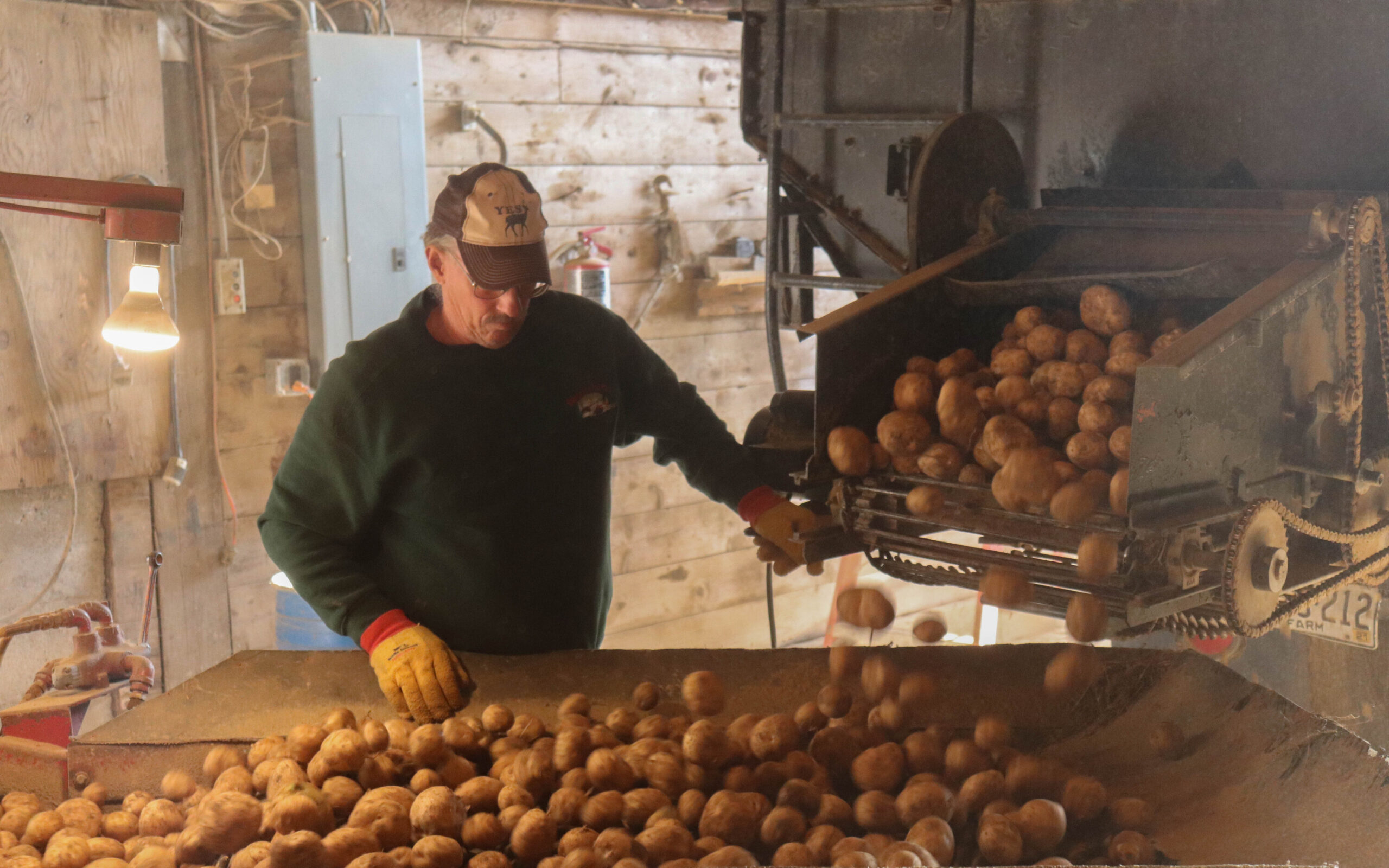
Gov. Janet Mills’ veto of a bill to give farmworkers minimum wage elicited different reactions from two of Maine’s agricultural powerhouses.
Mills vetoed An Act to Make Agricultural Workers and Other Related Workers Employees Under the Wage and Hour Laws on Wednesday. The legislation would have mandated that farmworkers receive the state’s annually indexed minimum wage of $13.80 an hour.
The Maine Potato Board applauded the decision because the group said the bill, which had seen several changes including the removal of an overtime pay stipulation, left too many questions unanswered. The Maine Organic Farmers and Gardeners Association blasted Mills, saying farmworkers, who now receive the lower federal minimum wage of $7.25 an hour, should be paid the same as other laborers.
The problem is that agricultural crops don’t conform to regular work hours. Adverse weather can halt planting or harvesting, and workers often put in long hours when conditions allow. The bill would have capped mandatory overtime hours, which could affect farmers’ ability to complete seasonal work. Since potatoes are the state’s No. 1 crop, bringing in $258 million last year, the results could harm growers, a potato industry expert said.
“The language is not clear. It works well for industries that have a 9-to-5 schedule year-round, but agriculture doesn’t work that 9-to-5 schedule,” said Jeannie Tapley, Maine Potato Board assistant executive director.
The potato board does not oppose providing fair wages for farmworkers, but wants to make sure the bill’s language protects laborers and farmers, she said.
Tapley participated in a stakeholder group that studied the bill late in the session, but they only had three meetings. That wasn’t enough time to probe the complexities of giving farmworkers a regular employee status without knowing how it could affect the agricultural community, she said.
Agriculture is unique and Maine has a short growing period, Tapley said. Wording on overtime limits needs to be looked at to make sure there’s nothing that can hinder planting and harvest.
For instance, spring planting endured six weeks of rain, she said. Crews had to plant when the weather allowed, regardless of hours. The same is often true during harvest.
“If we were up against a long period of adverse weather, and then had just a couple weeks to get everything into the ground [until] more adverse weather, because of the way the statute was stated we wouldn’t have enough time to get the potatoes in the ground,” she said.
Maine is one of 19 states where minimum wage laws don’t apply to most farmworkers, according to the National Agricultural Law Center. Because they are not classified as employees under state law, they receive the $7.25 federal hourly minimum wage and are left out of mandatory overtime laws.
The definition of farmworkers includes not only those working in agriculture, but also people who work in certain food processing jobs, like canning, freezing and drying, and those who market, store, pack and distribute produce, meat and fish and perishable foods, according to the bill.
Mills said she supports paying farmworkers Maine’s minimum wage, but called for further study of the bill’s language in her veto letter. The wording is confusing and doesn’t answer specifically what type of farmworkers are included or what kinds of work could be affected, she said in the letter.
The Maine Organic Farmers and Gardeners Association on Wednesday criticized Mills’ veto. Mills has a history of opposing food workers’ interests, said Heather Spalding, the association’s deputy director.
Last year, Mills vetoed a bill that would have allowed farmworkers to unionize, and now she has shut down the minimum wage bill, a move that is “impossible to accept,” Spalding said in a statement.
“MOFGA will continue to advocate for farmworkers’ rights and believes that minimum wage is one small part of the reforms that need to be made in agricultural labor law,” Spalding said. “Farmworkers deserve all of the benefits and protections that all other workers in Maine are entitled to.”
Spalding was not immediately available for further comment Friday.
The Legislature will return Tuesday to vote on whether to override vetoes from Mills. At least two-thirds of lawmakers must vote to override a veto.
Mills will issue an executive order to bring the stakeholder group back to work on the legislation throughout the summer, Tapley said. A new version could be ready for discussion in early 2024.
BDN writers Michael Shepherd and Billy Kobin contributed to this report.
Correction: This story has been amended to reflect that the bill would have capped mandatory overtime.




